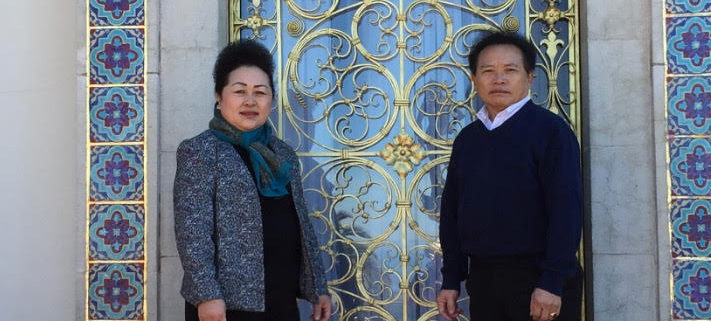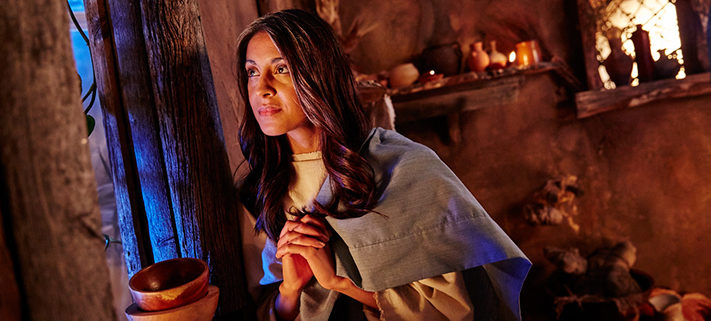How can we move past our parenting mistakes?
Heart to heart seeks to be a place where parents can share their experiences and support one another. This month’s column tackles the topic of parenting guilt that is so pervasive in our society.
What are the things you regret as a parent? We all have those things, don’t we? What pops into your head immediately when this topic comes up? No doubt, some regrets are serious. Others are more lighthearted. They all have one thing in common, though, and our authors this month do a beautiful job reminding us of it. Read on, fellow parents, and bask in your Savior’s forgiveness.
Nicole Balza
We live in a society that reviews and re-evaluates just about everything on a regular basis. It feels natural to have that same critical mindset about our parenting. When we reflect on words we have said or things we have done, it’s easy to feel that we could have said or done something better. We can have lingering feelings of regret and guilt, which might even be intense.
The reality of living as a flawed believer in a sinful world means that you’re not going to be a perfect parent. Sometimes you’re going to be a bad example for your children. You will do what you shouldn’t do, and you will fail to do something you should. You might do the wrong thing for the right reason. And there might even be times when, no matter how hard you try, you’ll be stuck between two bad choices, both of which are going to hurt at least one of your children in some way.
Logically, we realize that we don’t fail our children all the time. The vast majority of our kids are fed regularly, are wearing (reasonably clean) clothes, and have a roof over their heads. The basics are covered. But if we’re honest, we probably don’t have to think too hard to come up with something we’ve done to our child that brings a feeling of guilt. What can we do to assuage our feelings of guilt and regret?
First, know without a doubt that your sins have been forgiven. As children of God, we are blameless in his eyes through Christ. Because of God’s grace towards us, we also can apologize to our children for how we have hurt them. It’s a powerful parenting lesson for our children when we demonstrate repentance and forgiveness in action.
Despite the forgiveness we have, consequences of our sin may remain. Guilty feelings can linger. When we remember what we did, we may feel that we can’t forgive ourselves. But if God can unconditionally forgive us, then we also are free to forgive ourselves. In fact, God wants us to forgive ourselves! He doesn’t want us to live with feelings of shame and regret.
But what can we do about our lingering regret, especially if our sin caused lasting consequences for our child? Romans 8:28 says, “In all things God works together for the good of those who love him.” God promises to use the broken pieces of our lives to create something beautiful that glorifies him. God will not abandon us, even when nothing we’ve done has turned out as we’d hoped or expected.
God loves our children more perfectly than we ever can. We are his children, and our children are his children too. Our heavenly Father is the perfect parent who promises to love us, care for us, and work everything that we do (or fail to do) in our lives for the good of all his children.
Relax in that knowledge, fellow parents. God’s got it all under control.
Emily Gresens Strey and her husband, Johnold, have four children ranging in age from 2 to 13.
It was a long day at work. I was exhausted. When I finally returned home, I stopped by the refrigerator for a glass of milk. I opened the door, grabbed the milk container—empty! There was another full gallon right next to it, but who puts an empty milk container back in the refrigerator?
Aren’t there certain things or certain times when seemingly little things just get you frustrated? That’s what happened to me.
I could have tossed the container in the recycling and moved on—but not that day. Nope. It was time to find the one responsible, and I had an immediate suspect. My wife wouldn’t do it, and my daughter, Kayla, doesn’t drink milk. That left one person—my son, and it wasn’t the first time Josh was caught doing this. It was time to confront.
Here’s how that conversation went.
Me: “Josh, why would you leave an empty milk container in the fridge?”
Josh: “I didn’t!”
Me: “Mom and Kayla wouldn’t do it, so you’re telling me someone else came into our house, drank all our milk, and put the empty container back in the fridge?”
Josh: “It wasn’t me. Why do you think I always do things like that?”
You can imagine how the rest of that conversation went . . . until Kayla (overhearing parts of the conversation) yelled from the basement, “Don’t throw away the empty milk container in the fridge; it’s for school. We are building a raft for science class. I have to wash it out yet.”
At that moment, I felt like finding that raft and sailing far, far away. Oh, yes, another example of Great Moments in Parenting by Dan Nommensen.
You might think I’m being facetious by calling this a great moment in parenting, but it really was. In that short exchange with my son, I could probably count a dozen ways I screwed up and offended Josh and crossed the line for what God expects of a parent. Now remember Romans 5:20: “Where sin increased, grace increased all the more.” This truly was a great moment in parenting because I am forgiven by grace through the sacrifice of Jesus.
Praise God that my sins as a parent are not held against me. My joyful response to God’s grace was to tell Josh I screwed up and that I was sorry. This moment in parenting had the potential of creating a rift in our relationship, but it ended up presenting itself as an opportunity for greatness as I expressed my need for forgiveness and Josh extended that forgiveness to me.
Parents, do we have moments where we make mistakes that impact our children negatively? Maybe you’ve had more than a few? I know I have. The temptation is not to see these times as moments of grace but rather allow these experiences to build resentment and anger for both parent and child.
Does our sinful parental pride lead us to fall into the trap of thinking we are always right? If so, we are missing opportunities to see and show God’s grace and forgiveness.
But fear not, because it’s never too late! God’s unconditional love for us and his forgiveness never end. In the joy of knowing that by God’s grace we are forgiven and part of his family, watch for your great moments of parenting with your children.
Dan Nommensen and his wife, Kelly, have a teenage daughter and a pre-teen son.
On a hot July day in 1994, my husband and I walked out of the hospital with our firstborn, bound for home as a newly-minted family of three. At the car, we struggled to wrestle our tiny, slumpy newborn into a gigantic car seat. Finally, too many minutes later and sweaty with effort, we managed to buckle him in.
At the ripe old age of 24, my husband and I were practically still children ourselves. What did we know about parenting? Even 23 years later, thinking about our lack of preparedness makes me feel a little panicky and sweaty.
We train for so many things in life. We endlessly practice. We gain valuable on-the-job experience. We earn degrees. But for parenting, one of the most important jobs in the world? No experience necessary. And like all rookies, we make mistakes—loads and loads of them.
Many times since that July day, I have hung my head in shame and cried guilty tears for all the parenting mistakes I have made, for all the times I have yelled or lost my temper or done the polar opposite of what God wants me do. In contrast, I can’t ever recall thinking, “Wow. My kids are SO LUCKY to have me as a mom. I really knocked it out of the park today.” Oh, paralyzing guilt! How do we get past it?
Here are a few things we parents can remember:
• It was in God’s good plan to give our children to us. Our family was planned by him even before this world came to be (Psalm 139:16).
• Since God created our families, he also loves us with an eternal love. He equips us as parents and promises to strengthen us, bless us, and help us (Isaiah 41:10).
• For those parenting mistakes we have made—and they are many because we are sinful—we need to ask for God’s forgiveness. And through his sweet, sweet grace, he does forgive us (Ephesians 1:7). If he died on the cross to forgive all the sins of everyone of all time, why would our shortcomings as parents be the exception?
• Let’s also cut ourselves a little slack and remember that good kids sometimes do bad things (Romans 3:23)—even though a) they know better, b) that’s not how we raised them, and c) we’ve done our best to teach them what God’s Word says about pretty much everything.
Especially as our kids get older and make their own choices, we need to let go of our guilt. Also, remember the times that we’ve prayed with and for our children, loved them fiercely and unconditionally, taught them about their Savior, and battled to teach them life lessons about being a Christian light in this dark world. Don’t forget those times.
Lord, forgive us for the times we’ve failed as parents. Lord, thank you for the times we haven’t!
Ann Jahns and her husband, Thad, have three sons and a recently emptied nest.
Do you have a manuscript, idea, or story from your own life you’d like to share for use in Forward in Christ or on wels.net? Use our online form to share it to our editorial office for consideration.
Get inspirational stories, spiritual help, and synod news from Forward in Christ every month. Print and digital subscriptions are available from Northwestern Publishing House.
Author: Multiple Authors
Volume 104, Number 7
Issue: July 2017
Copyrighted by WELS Forward in Christ © 2021
Forward in Christ grants permission for any original article (not a reprint) to be printed for use in a WELS church, school, or organization, provided that it is distributed free and indicate Forward in Christ as the source. Images may not be reproduced except in the context of its article. Contact us







